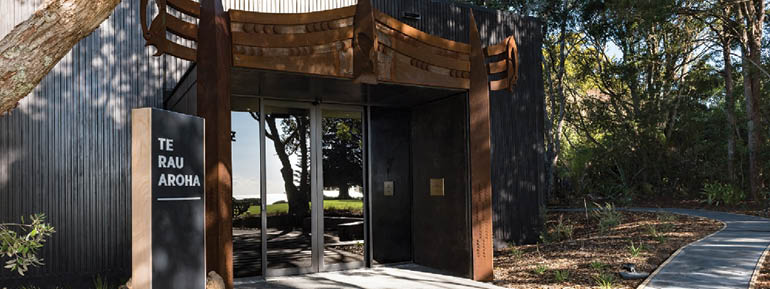Our year in review – executive summary
Everything we do at MBIE is about Growing New Zealand for All. We recognise that a strong economy is one in which we use the skills, knowledge and time of our people in conjunction with our natural resources, and financial and physical capital to improve the wellbeing of current and future generations. We worked closely with Treasury to shape and deliver the Government’s Economic Plan which sets out the action needed to transition New Zealand’s economy to one that is productive, sustainable and inclusive.
Our five outcomes outlined in our Statement of Intent show how MBIE aims to support sustainable economic performance and build an economy that improves wellbeing across New Zealand.
On this page
The role MBIE played and our response to the COVID-19 pandemic is covered in the COVID-19 section.
With the world continuing to change and evolve at an increasing pace, it is important that people, sectors and regions are prosperous and adaptable to continue growing and thriving. The ongoing challenge is to build a more productive, sustainable, inclusive and future-ready economy to improve the wellbeing of New Zealanders.
Our aspirations for New Zealanders are high and we know we can’t get there alone. We recognise that success is built on partnership, including the Māori–Crown partnership that underpins our work. Te Kupenga, the Māori Economic Development Unit in MBIE, has been enabling strategic pathways to partner with Māori to lift economic prosperity in a productive, sustainable and inclusive way. The Waitangi Tribunal upheld our engagement process of the Plant Varieties Act 1987 review, commending us for going above and beyond in considering previous recommendations and being Treaty-compliant.

The Provincial Growth Fund (PGF) has attracted significant interest from regional communities, with more than 2,100 applications being received by the Provincial Development Unit (PDU) as of June 2020. These applications have promoted a level of collaboration between business, iwi, local councils and community leaders which has not been seen in recent times. As of June 2020, a total of $2.63 billion of PGF and Regional Investment Opportunities funding has been committed and $2.04 billion has been contracted with recipients. Investment has been spread across the country and a range of sectors which play a key role in New Zealand’s long-term economic success.
A great example is a new museum at Waitangi, Te Rau Aroha, which commemorates the contributions of Māori to New Zealand’s military efforts, with $14.5 million of funding from the PGF. Along with being an important taonga for New Zealand and honouring our history, the museum has had significant flow-on benefits for Northland’s economy.
The PGF’s investment in the Ōpōtiki Harbour Development is expected to produce $132 million in economic benefits for New Zealand and create approximately 1,850 jobs. In addition, we activated the Temporary Accommodation Service (TAS) in response to flooding caused by heavy rainfall in Southland and helped those affected to find temporary accommodation.

Photo: Waitangi Treaty Grounds
To continue Growing New Zealand for All, it is important people are skilled and engaged in safe and fulfilling work. The Construction Accord Transformation Plan launched last year is a tangible plan that ensures industry has the right skills, the right people, and the right internal coordination to lift its productivity and take advantage of future opportunities.
Our work in reforming the employer-assisted temporary work visas ensures the visa process is more streamlined and less complex, replacing six visa categories with one temporary work visa. It’s designed to make sure foreign workers are only recruited for genuine shortages, help reduce exploitation, and create better connections between immigration, education and welfare systems.
It is one of our priorities to make sure we have informed consumers and businesses interacting with confidence. To that effect, we are proud of the work we’ve done in 2019/20 in the following areas.
- A ban on the sale of inclined infant sleep products took effect in December 2019.
- The New Zealand Electronic Travel Authority was introduced in August 2019 to improve passenger facilitation, strengthen border security and bring New Zealand’s border controls in line with international best practice.
- The Computer Emergency Response Team (CERT NZ) continues to build awareness among everyday New Zealanders and businesses of the importance of cyber security, while offering practical advice and information on ways to achieve this. The organisation’s increased engagement with a range of sectors across New Zealand and the wider Pacific region empowers more people to take action to stay secure online.
- The changes to the Fair Trading Act 1986 draw a line in the sand about acceptable standards of commercial conduct in New Zealand. Vendors bidding for government business will now have to demonstrate how they contribute to the wellbeing of New Zealanders through broader outcomes that support wider social, economic, cultural and environmental outcomes that go beyond the immediate purchase of goods and services and improve conditions for New Zealand workers and reduce emissions and waste. This is the result of the new edition of the Government Procurement Rules released in 2019.
The natural environment is integral to our economic activity, and it’s important to make sure that we sustainably derive value from it.
- Our 10-year Minerals and Petroleum Strategy provides the direction for the sector in the transition to a low-carbon, productive, sustainable and inclusive economy.
- The Electricity Price Review is supporting the Government’s response to the recommendations, including legislation that will improve the regulation of the electricity industry and remove barriers for the uptake of distributed energy technologies.
- We have reviewed the settings for default KiwiSaver providers to exclude funds that invest in fossil fuels.
- We are showing global leadership by investing in a science mission that will directly help to fight climate change. MethaneSAT is a cutting-edge climate science mission that will see Kiwi researchers working alongside the world’s best climate scientists and aerospace experts, and building important capability in our rapidly growing space sector.
As we recover from the impact of COVID-19 and rebuild New Zealand, our prosperity depends on having a thriving business sector, and our role is to create a dynamic business environment fostering innovation and international connections.
- There are over half a million small businesses in New Zealand, and supporting them is an important step in growing the economy. We amalgamated our small business functions into two main business areas within MBIE to significantly improve our support and enable small businesses to prosper.
- We’ve introduced e-invoicing, which ensures businesses are paid faster and more efficiently, thereby helping them prosper and grow.
- To support successful innovation-based business in New Zealand, we also funded and supported the Edmund Hillary Fellowship with the Global Impact Visa programme, which has seen 20 investments in New Zealand start-ups totalling $4.3 million and actively assisted New Zealand start-ups to raise a further $16.5 million of capital from international sources.
- We enabled early access to the 5G spectrum to allow the telecommunications industry to move forward in their development and deployment of 5G services, giving New Zealand world-class connectivity and providing a platform for exciting new applications that can improve future livelihoods and ways of life.
- Celebrating women’s sport, we embraced the opportunity to co-host the FIFA Women’s World Cup 2023 along with Sport New Zealand, New Zealand Football and their Australian counterparts. The joint bid and hosting will accelerate Australia and New Zealand’s plans to achieve 50:50 gender participation in sport by 2027 and help us realise the benefits of such events in terms of economic impact, international profile and bringing our communities together.

